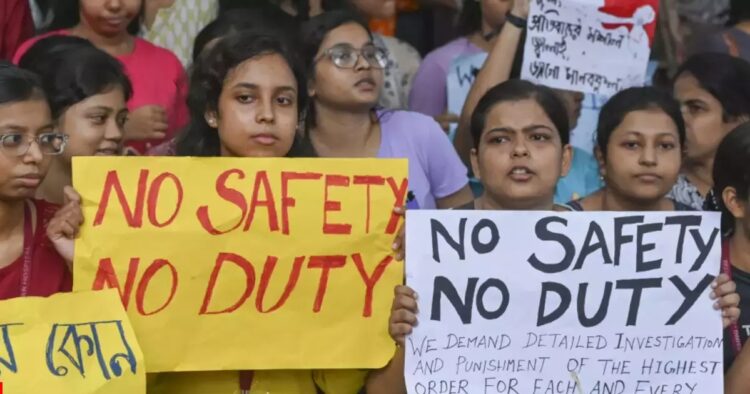On August 9, a tragic incident occurred at Kolkata’s RG Kar Medical College and Hospital. A post-graduate trainee doctor was found dead inside the seminar hall of the institution. The autopsy revealed that the woman had been raped and murdered, leaving the medical community and the public in shock.
In response to the gravity of the situation, the Calcutta High Court intervened on Tuesday, directing the Central Bureau of Investigation (CBI) to take over the investigation from the Kolkata Police. The court has instructed the police to hand over all documents related to the case to the CBI immediately. This move comes as a relief to many, including doctors and medical students who have been actively protesting for justice.
The death of the young doctor has sparked widespread outrage. On Tuesday, medical professionals across the country, including those at AIIMS Delhi, staged a protest. The Federation of All India Medical Association (FAIMA) had earlier called for a nationwide shutdown of outpatient departments (OPDs) in solidarity with the victim. They demand that the authorities thoroughly investigate the crime and ensure that the perpetrators are brought to justice.
Adding to the controversy, the former principal of RG Kar Medical College, Sandip Ghosh, resigned from his position on Monday. His resignation came amid allegations of defamation on social media following the tragic incident. What has further fueled the outrage is Ghosh’s subsequent appointment as the principal of Calcutta National Medical College and Hospital, which has been met with protests and criticism.
The Calcutta High Court has questioned this appointment, calling it morally questionable and asking Ghosh to submit a leave application by 3 pm today or face further orders to vacate the position.
The investigation into the doctor’s death has revealed that the victim had scratch marks on her body, suggesting a struggle. The allegations made by her family claim that she was brutally raped and murdered. The severity of this case highlights a grim reality: the safety of women, even in high-profile institutions, is alarmingly compromised.
Union Health Minister JP Nadda has held a meeting with a delegation from the Indian Medical Association (IMA) to address the situation. The IMA has demanded a thorough and unbiased investigation into the crime, as well as measures to improve the safety of doctors, particularly women, in their workplaces.
This incident raises serious questions about the effectiveness and responsibility of the West Bengal government in ensuring the safety of women. Despite having a female Chief Minister, Mamata Banerjee, the state has faced repeated issues with violence and safety concerning women. The lack of swift and effective action in this case reflects poorly on the state’s administration and its ability to protect its citizens.
The situation in Kolkata, in particular, raises concerns about systemic failures within the West Bengal government. Critics argue that the government has not done enough to address issues of safety and security in medical institutions and other public spaces.
This case serves as a stark reminder that, despite progressive political leadership, real challenges remain in ensuring the safety and well-being of women.
The case not only highlights the urgent need for justice for the victim but also calls for a reassessment of how the West Bengal government handles issues of safety and accountability in its institutions.

















Comments